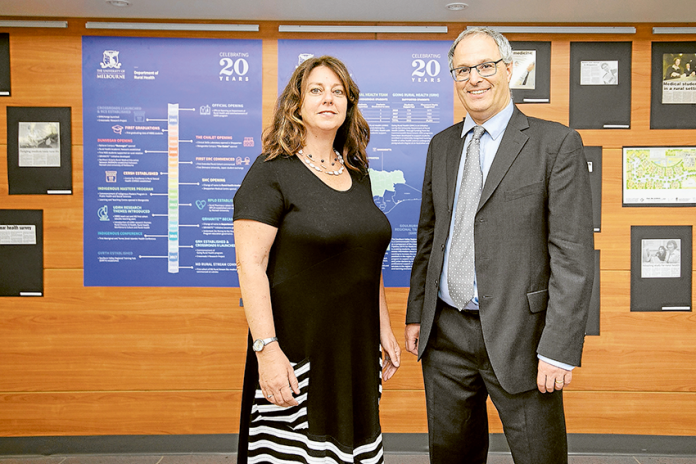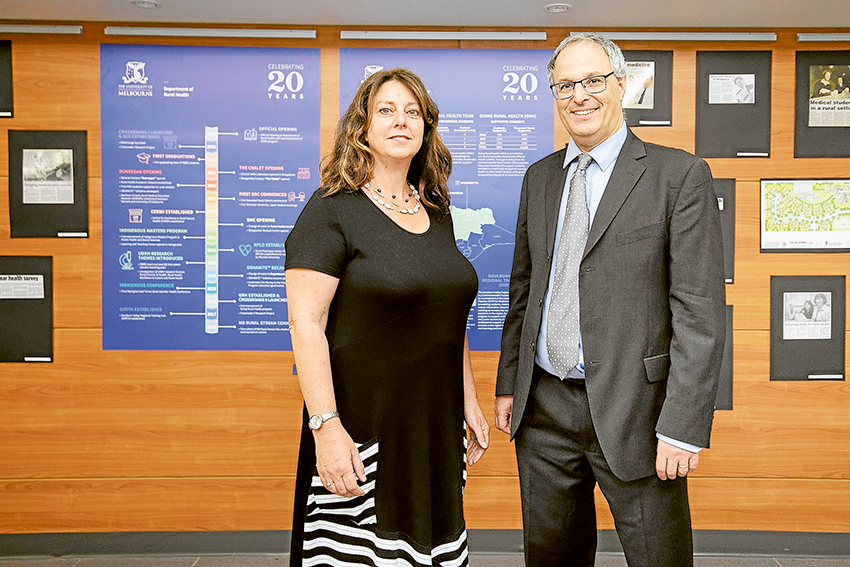

JUST over 150 people who have had connections with the University of Melbourne came together last Friday to celebrate a very special occasion, the campus’ 20th anniversary.
In 1999 the Shepparton community identified a need for better recruitment and retention of their health workforce, leading to the founding of the University of Melbourne Department of Rural Health.
Starting with just nine staff the school now employs over 100 and comes into contact with around 2,000 students per year. More impressively though, the school has had more than 10,000 students through the doors over the two decades.
The Shepparton campus’ foundation chair and first dean of the rural clinical school, Professor David Simmons said, “20 years ago there was a very clear need for the campus to be here. Firstly, there was a great demand for more general practitioners and secondly some of the rural health outcomes were not as good as one would have looked to have seen.
“But the clincher was that there was an Indigenous health workforce need, not only for Rumbalara but for the wider Aboriginal population.
“The changes over the years have been enormous. When I started there was a general need for more general practitioners and now that has changed.
“When I think about the hospital, the numbers of specialists has increased.
“In rural nursing, we had great limitations and that has now been worked on. The workforce is much bigger and in terms of health, things have improved on broad terms.”
University of Melbourne Department of Rural Health director, Professor Lisa Bourke said, “Some of the key milestones we have seen over the years have included becoming university department that supported student placements, research and Indigenous health, getting the medical school to teach students in Shepparton and helping to develop the Academy of Sport Health and Education (ASHE).
“In 2008 we opened the centre of excellence in rural sexual health which has been great for rural Victoria. It started here in Shepparton and the Goulburn Valley and is now across rural Victoria.
“More recently we secured the junior doctor training program to help the graduates develop pathways in their multiple specialities while staying in the Goulburn Valley and then we now have a partnership with La Trobe to provide a full medical degree for 30 students per year.
“Over the years we have also expanded our teaching places.
“It has just been a department grown from strength to strength.”
“I think in the future we will continue to grow. I’d like to see us offer graduate nurse training and physiotherapy, occupational therapy and some of the mental health disciplines and strengthen our work in Aboriginal health.”





